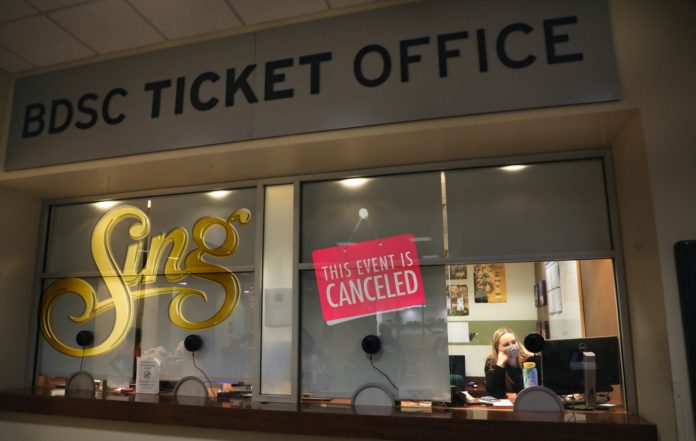
By Avery Owens | Staff Writer
All-University Sing is a Baylor tradition that allows students to express their creativity while making lasting memories with their peers.
As for how the University benefits, Sing provides the school an opportunity to financially invest in the student body. This leaves Baylor with no monetary profit from the event.
Matt Burchett, Baylor’s Director of Student Activities, describes where the money generated from SING ends up.
“We don’t profit at all from Sing,” Burchett said. “We want our students to have the most vibrant undergrad experience possible. Any revenue generated from ticket sales goes to funding the event and the infrastructure associated from that. That’s live band, that’s technology, that’s ushering staff, that’s cleaning, all the things that go into having a hall dedicated for nearly six weeks to a performance.”
Any money leftover from ticket sales and not used for the production of Sing goes back to the students involved.
“Whatever we have remaining after expenses, we reimburse the student organizations up to $4,000 per student group,” Burchett said. “That’s always our aspiration — to try and dedicate nearly $80,000 of resources back into student organizations. We try to meet that aspiration post-expenses as best we can.”
In addition to the reimbursement, Burchett said Baylor pays for the storage required for props and other items for acts that qualify for Pigskin Revue.
“The University picks up other expenses. We buy a backdrop for an organization or technology that they may need to be successful, an extra microphone, those types of things we’re picking up as an auxiliary expense beyond that reimbursement,” Burchett said. “We don’t want cost of the act to be a limitation. We offer scholarships for acts that are either new to the performance or can’t afford a performance.”
Baylor attempts to reinvest back into the students directly.
“We don’t run programs in which we generate revenue and then turn around and use it for a purpose that’s not specific to the specific program or initiative,” Burchett said. “It’s one of the tenets of our programming model is that we really want to be student-led. We think that allows for a lot of vibrancy and innovation in our programming models.”
Frisco senior Thomas Mello has served as the Executive Producer of Sing for the past year. He said he is appreciative to Baylor for creating an atmosphere that promotes school spirit.
“The cool part of Sing isn’t that there are people on stage dancing. That’s definitely secondary to the true purpose, which is to gauge the student spirit,” Mello said. “Sing’s always been great at that, because people from around the country can come and see how thriving the spirit is.”
Even though Sing isn’t happening this year, plans for Pigskin are in motion and there is hope that Sing will happen in 2022.
“We plan on doing Pigskin this year. We’ll have a full act and a full homecoming, which we’re excited about unless the conditions dramatically change,” Burchett said. “We’re planning towards homecoming being back to normal, and obviously Sing 2022 will be the tradition we know and love.”





